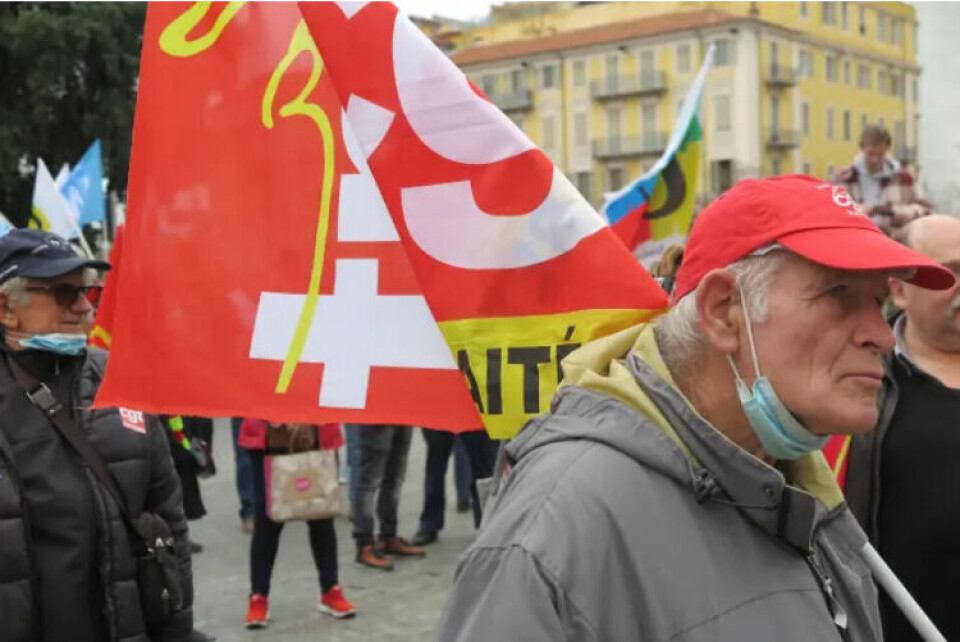-
Strike at Crédit Agricole sees many branches closed
Unions are asking for the reopening of salary negotiations
-
Doctors in France announce strike action: it may be harder to get appointments
First wave of action set to begin on December 3
-
Why farmers plan to block A10 and A71 motorways in France this weekend
Action comes after the publication of a study on water usage
Most strikes in France are on a Tuesday or a Thursday. Here’s why
A cross-sector strike is planned for tomorrow (October 27) and another for Thursday November 10

A new multi-sector strike has been announced in France for tomorrow Thursday, October 27, with transport disruption expected.
The strike notice was issued by the CGT union and is set to be followed by professionals from different sectors across the country. It comes after a similar day of action last Tuesday (October 18) and is expected to be followed by another strike on November 10.
Read more: New strike on Thursday October 27 in France: Why and what sectors?
Like many strikes in France, the demonstrators have chosen to take to the streets on a Tuesday and a Thursday.
The Connexion spoke with Sebastien Crozier, president of the CFE-CGC union’s Orange branch, and Bernard Vivier, director of the Institut superieur du Travail, to understand why strikers opt for these two days.
“Protestors have been learning after a century and a half of professional struggle and conquest,” said Mr Crozier.
No official statistics have been published by the Direction de l'Animation de la recherche, des Études et des Statistiques (Dares), an agency linked to France’s labour ministry, on the days on which strikes fall most. However we notice how regularly strikes do fall on Tuesdays and Thursdays.
Here we list points for each weekday which contribute to the strikers’ decision on days.
Monday
French civil servants (fonctionnaires), such as teachers and nurses, almost never strike on Mondays as it affects their wages more than on Tuesdays, Wednesdays and Thursdays. The same is true for Fridays.
The reason for this lies in a complicated formula for public sector wages which measures them in groups of 30. It means a strike taken on a Monday (or Friday) accounts for three days in the wage system rather than one, resulting in a 10% pay deduction for that month.
This does not apply to private sector workers but many strikes start with public sector workers and are then followed and joined by private sector workers.
Mr Vivier said it is also harder for unions’ to organise a Monday strike with the weekend in the way beforehand.
Tuesday
France's most notable strikes often happen on Tuesdays.
Tuesday, December 12, 1995 was a day to remember for many French people as it marked the climax of the fight against former Prime Minister Alain Juppé’s plan to cut the pensions and social security cover of civil servants to match that of the private sector.
No train, metro and tramways were running and only 5% of buses were available over a three-week period, with two million people taking to the streets to demonstrate across France on December 12.
Wednesday
This is the day where parents ask their employers for a day off in order to take care of young children since most do not have school either in the afternoon or all day. It is therefore not a great day to hold a strike as it would be more complicated to organise child care.
Thursday
For similar reasons as on Tuesdays, unions also often opt for Thursdays, depending on the calendar, and many of France’s most significant days of industry action have happened on Thursdays.
Mr Crozier said, however, that striking on Tuesdays can potentially cause more damage for the company involved if the movement is extended into the week.
“You have less hostility from people if you strike on Tuesdays because it affects people working, while an extended Thursday strike affects the weekend, which is traditionally filled with leisure activities,” he added.
Friday
“You do not hold a strike on a Friday,” said Mr Vivier, adding that it is harder to continue action during the week-end.
Striking on Fridays also has the same negative consequences on wages for public sector workers as striking on Mondays.
Related articles
‘Why we were striking over inflation and worker pay in France today’
























